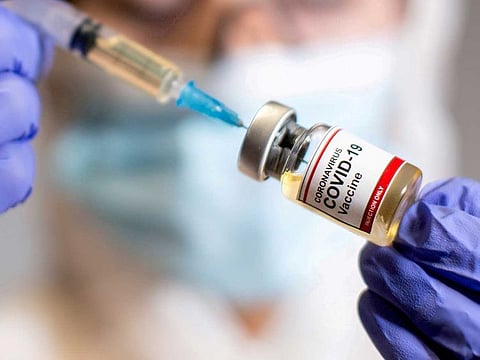World cannot be fixated on IP rights when it comes to COVID-19 vaccines
Only this will ensure speedy delivery of vaccines across borders and to all

A proposal by India, South Africa and eight others calls on World Trade Organisation (WTO) to exempt member countries from enforcing some patents and other Intellectual Property (IP) rights under Trade-Related Aspects of Intellectual Property Rights (TRIPS) for a limited period.
It is to ensure that IP rights do not restrict the rapid scaling- up of manufacturing of COVID-19 vaccines and treatments. While a few member- countries have raised concerns about the proposal, a large proportion supports the proposal. It has also received the backing of various multilateral agencies... and the global civil society.
Unprecedented times call for unorthodox measures. The situation appears to be grimmer than predicted: we have already lost 7 per cent of economic output from the baseline scenario projected in 2019. It translates to a loss of more than $6 trillion of global GDP.
Here's the math
Even a 1 per cent improvement in global GDP from the baseline scenario will add more than $800 billion in global output, offsetting the loss certainly of a much lower order to a sector of economy on account of the waiver. Merely a signal to ensure timely and affordable access to vaccines and treatments will work as a big confidence booster for demand revival in the economy.
With the emergence of successful vaccines, there appears to be some hope on the horizon. But how will these be made accessible and affordable to global population? As things stand, even the most optimistic scenarios today cannot assure access to vaccines and therapeutics for the majority of the population, in rich as well as poor countries, by the end of 2021.
Too ponderous
The existing flexibilities under the TRIPS Agreement are not adequate, as these were not designed keeping pandemics in mind. Compulsory licenses are issued on a country by country, case by case and product by product basis, where every jurisdiction with an IP regime would have to issue separate compulsory licenses, practically making collaboration among countries extremely onerous.
Why is there a need to go beyond existing global co-operation initiatives?
Global co-operation initiatives such as the COVAX Mechanism and the ACT-Accelerator are inadequate to meet the massive global needs of 7.8 billion people. The ACT-A initiative aims to procure 2 billion doses of vaccines by the end of next year and distribute them fairly around the world.
With a two-dose regime, however, this will only cover 1 billion people. That means that even if ACT-A is fully financed and successful, which is not the case presently, there would not be enough vaccines for the majority of the global population.
Track record
During the initial few months of the pandemic, we have seen that shelves were emptied by those who had access to masks, PPEs, sanitizers, gloves and other essential COVID-19 items even without their immediate need. The same should not happen to vaccines.
Eventually, the world was able to ramp up manufacturing of COVID-19 essentials as there were no IP barriers hindering that. At present, we need the same pooling of IP rights and know-how for scaling up the manufacturing of vaccines and treatments, which unfortunately has not been forthcoming, necessitating the need for the waiver.
This is the way
The TRIPS waiver proposal is a targeted and proportionate response to the exceptional public health emergency that the world faces today and is well-within the provisions of Article IX of the Marrakesh Agreement that established the WTO. It can help in ensuring that human lives are not lost for want of a timely and affordable access to vaccines.
The adoption of the waiver will also re-establish WTO’s credibility and show that multilateral trading system continues to be relevant and can deliver in times of a crisis.
While making the vaccines available was a test of science, making them accessible and affordable is going to be a test of humanity. History should remember us for the "AAA rating” - for availability, accessibility and affordability - of COVID-19 vaccines and treatments and not for a single “A rating” for availability only. Our future generations deserve nothing less.

- Brajendra Navnit is the Permanent Representative of India at WTO.







